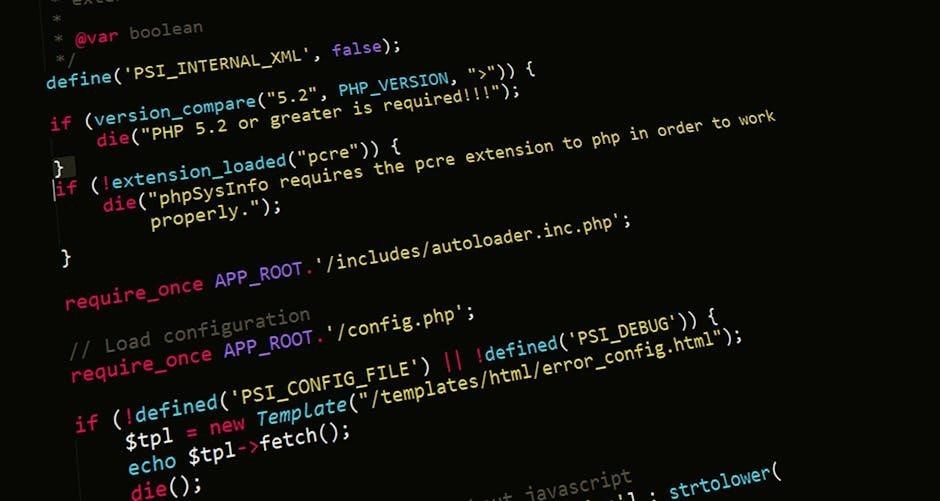Artificial Intelligence (AI) refers to systems designed to simulate human intelligence, enabling machines to perform tasks like decision-making, problem-solving, and learning. This guide introduces AI basics, its relevance, and applications.
1.1. Definition and Scope of AI
Artificial Intelligence (AI) refers to computer systems designed to simulate human intelligence, enabling machines to perform tasks like problem-solving, decision-making, and learning. AI systems can analyze data, adapt to new information, and improve their performance over time. The scope of AI spans across various industries, from healthcare to finance, transforming how tasks are executed. It encompasses subsets like machine learning and deep learning, focusing on creating intelligent systems that can operate autonomously or augment human capabilities. Understanding AI’s definition and scope is crucial for grasping its potential and applications in modern technology.
1.2. Brief History of AI
The history of Artificial Intelligence (AI) began with the Dartmouth Conference in 1956, where the term “AI” was coined. Early advancements focused on rule-based systems and symbolic reasoning. The 1980s saw the rise of machine learning, while the 21st century brought deep learning, enabling breakthroughs in image and speech recognition. AI has evolved significantly, transitioning from theoretical concepts to practical applications across industries. This progression highlights AI’s transformative potential, shaping its role in modern technology and society. Understanding its historical development provides context for its current capabilities and future directions.
1.3. Key Branches of AI (Machine Learning, Deep Learning, etc.)
AI encompasses several key branches, each focusing on distinct capabilities. Machine learning involves systems learning from data without explicit programming, while deep learning uses neural networks to tackle complex tasks. Natural Language Processing (NLP) enables machines to understand and generate human language. Computer Vision focuses on image and video processing. Reinforcement Learning involves systems learning through interaction and trial. Robotics combines AI with physical systems. These branches collectively drive advancements in areas like autonomous vehicles, recommendation systems, and intelligent assistants, showcasing AI’s versatility and transformative potential across industries.

Why Learn Artificial Intelligence?
Learning AI unlocks career opportunities, transforms industries, and prepares you for future technological advancements, making it a vital skill for staying relevant in a rapidly evolving world.
2.1. Career Opportunities in AI
The demand for AI professionals is soaring, with roles like AI Engineer, Machine Learning Specialist, and Data Scientist being highly sought after. These careers offer competitive salaries and growth opportunities across industries such as healthcare, finance, and technology. Additionally, AI expertise opens doors to innovative fields like robotics and natural language processing. As AI continues to evolve, professionals with these skills are well-positioned to lead and shape the future of technology. The job market for AI specialists remains robust and expanding.
2.2. Impact of AI on Various Industries
AI is transforming industries like healthcare, finance, and retail by enhancing efficiency and innovation. In healthcare, AI improves diagnostics and personalized treatments. Finance benefits from AI-driven fraud detection and algorithmic trading. Retail uses AI for customer insights and personalized shopping experiences. Education leverages AI to create adaptive learning platforms. Across sectors, AI automates tasks, optimizes operations, and enables data-driven decision-making, leading to cost reductions and improved outcomes. Its integration fosters smarter, more responsive systems, driving growth and competitiveness in a rapidly evolving global economy.
2.3. Future Prospects and Growth in AI
The future of AI holds immense potential, with advancements in quantum computing, IoT, and edge AI promising transformative growth. AI will continue to revolutionize industries, creating new opportunities in areas like autonomous systems, personalized healthcare, and sustainable energy. Demand for AI skills is rising, driving innovation and investment. Ethical considerations will shape regulations, ensuring responsible development. As AI evolves, its integration with emerging technologies will redefine industries, fostering a future where human and machine collaboration drives progress, creating unparalleled opportunities for societal and economic advancement.

Roadmap to Learning Artificial Intelligence
Master AI by starting with basics like math and programming, then progressing to machine learning fundamentals. Finally, explore advanced topics like neural networks and NLP.
3.1. Step 1: Master the Basics (Mathematics, Programming, etc.)
Laying a strong foundation is crucial for AI learning. Mathematics, particularly linear algebra, calculus, and statistics, forms the core of AI concepts. Programming skills in languages like Python or R are essential for implementing algorithms. Start with basic programming principles, data structures, and algorithms. Additionally, gain familiarity with libraries such as NumPy and Pandas for data manipulation. Understanding these fundamentals will provide a solid base for advancing in AI and machine learning.
3.2. Step 2: Understanding Machine Learning Fundamentals
Machine learning, a subset of AI, involves training algorithms to learn from data and make predictions or decisions. Start with key concepts like supervised, unsupervised, and reinforcement learning. Study essential algorithms such as linear regression, decision trees, and clustering. Understand how neural networks function and their role in deep learning. Practical exercises and projects will help solidify these concepts, enabling you to build models and solve real-world problems effectively.
3.3. Step 3: Exploring Advanced Topics (Neural Networks, NLP, etc.)
Delve into advanced AI topics like neural networks, which form the foundation of deep learning. Study convolutional and recurrent layers for image and sequence processing. Explore natural language processing (NLP) for text analysis and generation. Discover computer vision applications and reinforcement learning for decision-making. Hands-on projects with libraries like TensorFlow or PyTorch will deepen your understanding. Stay updated on trends and research to master these cutting-edge areas effectively.

Essential Skills for AI Enthusiasts
Mastering AI requires strong mathematical foundations, programming skills, and data science expertise. Familiarity with AI frameworks and tools, along with problem-solving and logical reasoning, is crucial for success.
4.1. Programming Skills (Python, R, etc.)
Proficiency in programming languages like Python and R is essential for AI enthusiasts. Python, with libraries such as NumPy, pandas, and TensorFlow, is widely used for AI and machine learning tasks. R excels in statistical analysis and data visualization, making it ideal for data-intensive AI projects. Additionally, understanding SQL for database management and Java or C++ for advanced AI applications can enhance your skill set. These tools are fundamental for implementing algorithms, manipulating data, and building AI models effectively.
4.2. Data Science and Analytics
Data science and analytics are cornerstone skills for AI enthusiasts, enabling the extraction of insights from complex datasets. Proficiency in data preprocessing, visualization, and statistical analysis is crucial for training AI models. Tools like pandas, NumPy, and Matplotlib in Python, along with R libraries, facilitate data manipulation and visualization. Understanding data-driven decision-making processes ensures effective model development and deployment, making data science indispensable for AI applications and real-world problem-solving.
4.3. Familiarity with AI Frameworks (TensorFlow, PyTorch, etc.)
Familiarity with AI frameworks like TensorFlow, PyTorch, and Keras is essential for building and training AI models; These tools provide libraries and APIs to streamline tasks such as neural network development and data processing. TensorFlow, developed by Google, offers scalable solutions, while PyTorch, known for its flexibility, is favored in research. OpenCV supports computer vision tasks, and Scikit-learn complements these frameworks with traditional machine learning algorithms. Mastering these frameworks enables efficient model implementation and deployment, crucial for real-world AI applications.
AI Ethics and Responsible Learning
AI ethics emphasizes responsible development, ensuring fairness, transparency, and accountability in AI systems. It addresses bias, privacy, and societal impacts, guiding ethical AI practices and innovation.
5.1. Ethical Considerations in AI Development
Ethical considerations in AI development are crucial to ensure systems align with human values. They involve addressing issues like bias, privacy, and transparency. Developers must prioritize fairness and accountability to prevent harm. Additionally, ethical AI practices require ongoing monitoring to mitigate unintended consequences. By integrating ethical frameworks, AI can be developed responsibly, fostering trust and positive societal impact.
5.2. Bias and Fairness in AI Systems
Bias in AI systems occurs when algorithms produce unfair or discriminatory outcomes due to flawed training data or design. Ensuring fairness requires diverse datasets and rigorous testing to identify and mitigate biases; Regular audits and transparency in AI decision-making processes are essential to build trust. Addressing bias is critical to prevent harm and ensure equitable treatment across all groups. Fair AI systems promote inclusivity and ethical outcomes, fostering confidence in their applications across industries.
5.3. Academic Integrity and AI Tools
Academic integrity in AI involves ethical use of AI tools to enhance learning without compromising original work. Proper citation of AI-generated content is essential to avoid plagiarism. Students must understand AI’s role in education and use these tools responsibly, ensuring transparency in their work. Institutions should provide clear guidelines on acceptable AI usage to maintain trust and uphold academic standards. By adhering to these principles, students can leverage AI’s potential while preserving the authenticity of their academic contributions.
Practical Applications and Projects
Explore real-world AI applications in healthcare, finance, and more. Build models from scratch, participate in competitions, and gain hands-on experience to reinforce your learning journey.
6.1. Building AI Models from Scratch
Building AI models from scratch involves understanding fundamental concepts like data preprocessing, algorithm selection, and model training. Start with simple projects, such as linear regression or image classification, using tools like TensorFlow or PyTorch. Practical lessons and quizzes from AI curricula can guide you through coding exercises and labs. This hands-on approach helps you grasp how neural networks function and how to optimize them. By implementing models from scratch, you gain insights into the underlying mathematics and logic, enhancing your problem-solving skills and preparing you for real-world applications.
6.2. Real-World Applications of AI (Healthcare, Finance, etc.)
AI’s versatility is evident across industries, transforming healthcare with personalized treatments and diagnostics, finance with algorithmic trading and fraud detection, and education through adaptive learning platforms. Retail and transportation also benefit from AI-driven optimizations. These applications underscore AI’s transformative potential, driving innovation and improving efficiency and decision-making across sectors.
6.3. Participating in AI Competitions and Hackathons
Engaging in AI competitions and hackathons offers hands-on experience, fostering innovation and problem-solving skills. Platforms like Kaggle host contests for model optimization, while hackathons encourage rapid prototyping of AI solutions. These events provide opportunities to collaborate with peers, gain feedback from experts, and showcase projects. They also serve as valuable networking avenues, connecting enthusiasts with industry professionals and potential employers; Participating in such events enhances practical knowledge and prepares learners for real-world AI applications.

AI Tools and Resources
Explore essential AI tools like TensorFlow, PyTorch, and scikit-learn for building models. Utilize online courses, tutorials, and books to deepen your understanding and practical skills in AI.
7.1. Popular AI Libraries and Frameworks
TensorFlow and PyTorch are leading AI frameworks for building neural networks and deep learning models. Keras simplifies model development, while scikit-learn excels in traditional machine learning. These tools enable efficient AI model creation, from prototyping to deployment, making them indispensable for both researchers and developers in the field.
7.2. Online Courses and Tutorials
Explore a wide range of online courses and tutorials to master AI fundamentals. Platforms like Coursera, edX, and Udacity offer comprehensive programs in AI and machine learning. IBM’s AI course provides an introduction to key concepts, while Google’s AI tools help developers build practical skills. These resources cater to all skill levels, from beginners to advanced learners, ensuring a structured learning path. They often include hands-on projects, enabling learners to apply theoretical knowledge to real-world applications, making them indispensable for effective AI education.
7.3. Books and Research Papers for Advanced Learning
and Artificial Intelligence: A Modern Approach. These texts provide in-depth insights into AI concepts and algorithms. Research papers from leading journals and conferences, such as NeurIPS and ICML, offer cutting-edge advancements. Books like Deep Learning by Ian Goodfellow and Hands-On Machine Learning with Scikit-Learn are invaluable for practical implementation. These resources cater to both foundational and advanced learners, bridging theory and real-world applications effectively.

Career Guidance and Job Preparation
Craft a winning resume by highlighting AI-specific skills and projects. Prepare for interviews with practice coding challenges and technical questions. Network and build a professional portfolio to stand out in the competitive AI job market.
8.1. Crafting a Winning Resume for AI Roles
To craft a winning resume for AI roles, focus on showcasing technical skills like Python, R, and frameworks such as TensorFlow and PyTorch. Highlight projects that demonstrate your ability to build and deploy AI models. Include certifications and relevant coursework to stand out. Emphasize hands-on experience with data science tools and libraries. Tailor your resume to the job description, ensuring alignment with the employer’s requirements. Use clear, concise language and quantify achievements where possible. Lastly, leverage AI-powered resume tools to optimize your application and improve readability.
8.2. Preparing for AI-Related Interviews
Preparing for AI-related interviews requires a deep understanding of AI concepts, machine learning algorithms, and practical applications. Review foundational topics like neural networks, deep learning, and natural language processing. Practice coding problems using Python and popular libraries. Be ready to discuss real-world AI applications and your contributions to projects. Prepare for behavioral questions, such as your motivation for pursuing AI and ethical considerations. Use AI tools for mock interviews to refine your responses and ensure you’re well-versed in industry trends. This holistic preparation will help you stand out during the interview process.
8.3. Networking and Building a Professional Portfolio
Networking and building a professional portfolio are crucial for advancing your AI career. Join online communities like Kaggle, GitHub, and LinkedIn to connect with professionals and showcase your work. Attend AI conferences and hackathons to gain hands-on experience and collaborate with peers. Create a portfolio highlighting your AI projects, such as machine learning models or NLP applications, to demonstrate your skills. Share your contributions to open-source projects and regularly update your portfolio to reflect your growth and expertise in the field.

AI Communities and Forums
Engage with AI communities like Kaggle, GitHub, and LinkedIn to network with professionals, share knowledge, and collaborate on projects. Participate in forums to stay updated on AI trends.
9.1; Joining Online Communities (Kaggle, GitHub, etc.)
Joining online communities like Kaggle, GitHub, and LinkedIn is essential for networking with AI professionals, sharing knowledge, and collaborating on projects. These platforms offer access to datasets, libraries, and forums where you can learn from experts and gain hands-on experience. Participating in Kaggle competitions and GitHub repositories allows you to showcase your skills and stay updated on AI trends. Engaging with these communities fosters collaboration and innovation, helping you grow in your AI journey.
9.2. Attending AI Conferences and Workshops
Attending AI conferences and workshops provides valuable opportunities to learn from experts, network with professionals, and gain insights into cutting-edge advancements. Events like NeurIPS, ICML, and local meetups offer hands-on experience with tools and techniques. These gatherings also foster collaboration and expose you to real-world applications of AI. Workshops often include interactive sessions, enabling you to apply concepts immediately. Engaging with these events keeps you updated on AI trends and enhances your practical knowledge, making them a critical part of your learning journey.
9.3. Collaborating on Open-Source AI Projects
Collaborating on open-source AI projects offers hands-on experience and the chance to contribute to real-world applications. It enhances programming and problem-solving skills while fostering innovation. Working alongside experienced developers provides valuable feedback and learning opportunities. Open-source projects also allow exploration of AI frameworks like TensorFlow or PyTorch. This collaboration builds a strong portfolio, demonstrating commitment and expertise to potential employers. Engaging with the AI community through open-source initiatives promotes networking and amplifies career growth opportunities in the field.
AI is revolutionizing industries, offering vast opportunities for growth and innovation. Staying updated with AI trends ensures adaptability in this rapidly evolving field, shaping a transformative future.
10.1. Summing Up Your AI Learning Journey
Completing your AI learning journey is a significant milestone, reflecting your dedication to understanding intelligent systems. You’ve explored AI fundamentals, machine learning, and advanced topics like neural networks. Practical applications in healthcare, finance, and more have provided real-world context. Ethical considerations and responsible AI use have been emphasized. Continuous learning and adaptability are crucial as AI evolves. Stay curious, engage with communities, and leverage resources to remain updated. Your journey is just beginning, with endless opportunities to innovate and grow in this dynamic field.
10.2. Staying Updated with AI Trends
Staying updated with AI trends is essential to keep pace with this rapidly evolving field. Follow industry leaders, research papers, and conferences to learn about breakthroughs in machine learning and deep learning. Subscribe to AI-focused newsletters and join online communities like Kaggle or GitHub. Engage with AI tools and platforms to experiment with new technologies. Regularly reviewing AI ethics and policy changes ensures responsible learning. By staying informed, you can adapt to emerging opportunities and challenges, maintaining a competitive edge in your AI journey.
10.3. The Future of AI and Its Implications
The future of AI holds immense potential, with advancements in machine learning, neural networks, and deep learning expected to revolutionize industries. AI will likely enhance healthcare, finance, and education through personalized solutions. However, ethical considerations, such as bias and fairness, must be addressed to ensure responsible development. As AI becomes more integrated into daily life, it will reshape job markets and societal norms, emphasizing the need for continuous learning and adaptation to thrive in an AI-driven world.



